| Coach | NA |
| Venue | Stadion Stal |
Stal Rzeszów Trivia
Stal Rzeszów predictions
Predictions for Stal Rzeszów: See upcoming and historic predictions for Stal Rzeszów below.
Disclaimer: Past performance does not guarantee future results. Betting involves risk; only wager what you can afford to lose. Always gamble responsibly.
Stal Rzeszów Opinions
 Who is the greatest player in the history of Stal Rzeszów?
Who is the greatest player in the history of Stal Rzeszów?
Stal Rzeszów latest results
| 12/04 | - | ||
| 07/04 | 2 - 0 | ||
| 02/04 | 1 - 2 | ||
| 01/03 | 1 - 3 | ||
| 25/02 | 5 - 1 |
I Liga standings
| Rank | Team | MP | W | D | L | GF | GA | GD | Pts |
|---|---|---|---|---|---|---|---|---|---|
| 1 |
 Arka Gdynia
Arka Gdynia
|
26 | 15 | 6 | 5 | 43 | 25 | 18 | 51 |
| 2 |
 Lechia Gdansk
Lechia Gdansk
|
25 | 15 | 5 | 5 | 43 | 20 | 23 | 50 |
| 3 |
 Motor Lublin
Motor Lublin
|
26 | 13 | 5 | 8 | 36 | 31 | 5 | 44 |
| 4 |
 GKS Katowice
GKS Katowice
|
25 | 12 | 6 | 7 | 45 | 25 | 20 | 42 |
| 5 |
 Górnik Łęczna
Górnik Łęczna
|
26 | 10 | 12 | 4 | 29 | 24 | 5 | 42 |
| 6 |
 Tychy 71
Tychy 71
|
26 | 13 | 3 | 10 | 32 | 29 | 3 | 42 |
| 7 |
 Wisla Krakow
Wisla Krakow
|
26 | 11 | 8 | 7 | 48 | 32 | 16 | 41 |
| 8 |
 Wisla Plock
Wisla Plock
|
26 | 11 | 8 | 7 | 38 | 35 | 3 | 41 |
| 9 |
 Miedz Legnica
Miedz Legnica
|
26 | 9 | 10 | 7 | 35 | 28 | 7 | 37 |
| 10 |
 Odra Opole
Odra Opole
|
26 | 10 | 7 | 9 | 29 | 27 | 2 | 37 |
| 11 |
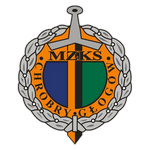 Chrobry Głogów
Chrobry Głogów
|
26 | 9 | 5 | 12 | 29 | 41 | -12 | 32 |
| 12 |
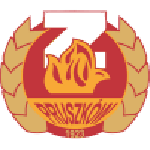 Znicz Pruszków
Znicz Pruszków
|
25 | 9 | 4 | 12 | 20 | 28 | -8 | 31 |
| 13 |
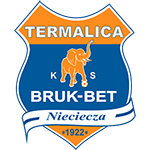 Nieciecza
Nieciecza
|
26 | 7 | 9 | 10 | 39 | 39 | 0 | 30 |
| 14 |
 Stal Rzeszów
Stal Rzeszów
|
25 | 8 | 5 | 12 | 34 | 43 | -9 | 29 |
| 15 |
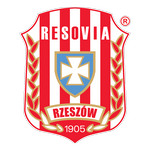 Resovia Rzeszów
Resovia Rzeszów
|
25 | 7 | 4 | 14 | 28 | 46 | -18 | 25 |
| 16 |
 Polonia Warszawa
Polonia Warszawa
|
25 | 5 | 8 | 12 | 29 | 37 | -8 | 23 |
| 17 |
 Podbeskidzie
Podbeskidzie
|
26 | 4 | 9 | 13 | 20 | 41 | -21 | 21 |
| 18 |
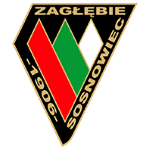 Zaglebie Sosnowiec
Zaglebie Sosnowiec
|
26 | 2 | 8 | 16 | 16 | 42 | -26 | 14 |
About Stal Rzeszów
Stal Rzeszów is a professional football club based in Rzeszów, Poland. Founded in 1944, the club has a rich history and has been a significant part of Polish football for over seven decades. The club's name, "Stal", translates to "steel" in English, reflecting the strength and resilience that the team embodies on the field.
Stal Rzeszów's journey began in the lower tiers of Polish football, but their consistent performances saw them rise through the ranks. The club first tasted top-tier football in the 1974/75 season when they were promoted to the Polish top division, Ekstraklasa. Although their initial stint in the top division was short-lived, Stal Rzeszów returned stronger and became a regular fixture in the Ekstraklasa throughout the 1980s and early 1990s.
The club's most successful period came in the late 1970s and early 1980s. During this time, they finished as high as 4th in the Ekstraklasa and reached the final of the Polish Cup in 1975. Despite not winning the cup, this achievement remains one of the club's proudest moments. Stal Rzeszów also made their mark in European football, participating in the UEFA Cup during the 1975/76 season.
Stal Rzeszów's home ground is the Stadion Miejski, a modern facility with a capacity of over 15,000 spectators. The stadium is a symbol of the club's ambition and growth, providing a fitting stage for the team's performances.
Like many football clubs, Stal Rzeszów has faced its share of challenges. The club has experienced financial difficulties and has been relegated to the lower divisions of Polish football on several occasions. However, they have always shown the resilience to bounce back, embodying the spirit of their name, "Stal".
The club has also been a breeding ground for talented footballers who have gone on to achieve success at higher levels. Notable alumni include Jacek Bąk, a former Polish international who played in the 2002 FIFA World Cup, and Tomasz Kłos, another Polish international who had a successful career in Germany's Bundesliga.
Stal Rzeszów's fan base, known as the "Blue Army", is one of the most passionate in Polish football. The fans' unwavering support, even in the face of adversity, has been a driving force behind the club's resilience and determination.
Today, Stal Rzeszów continues to be a significant part of Polish football. The club competes in the II Liga, the third tier of Polish football, and remains committed to returning to the top division. With a rich history, a passionate fan base, and a resilient spirit, Stal Rzeszów is a club that embodies the heart and soul of Polish football.















